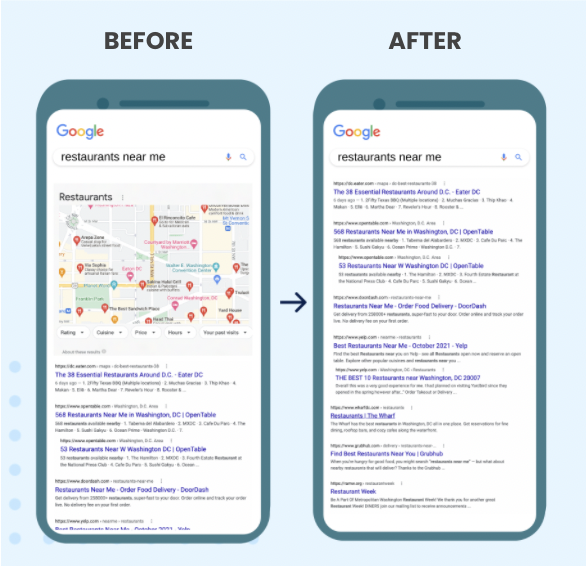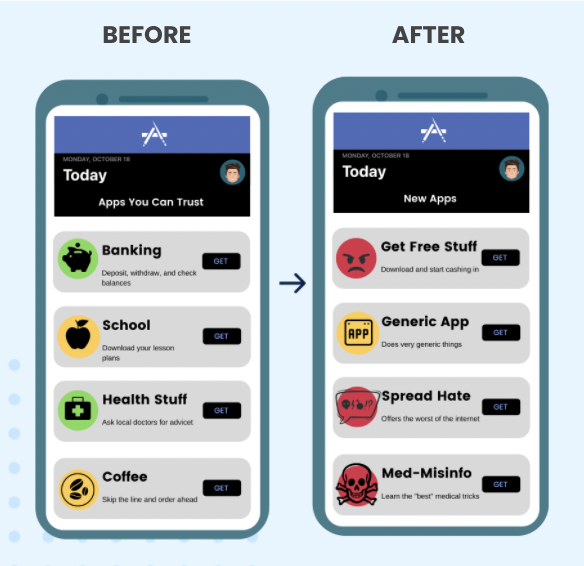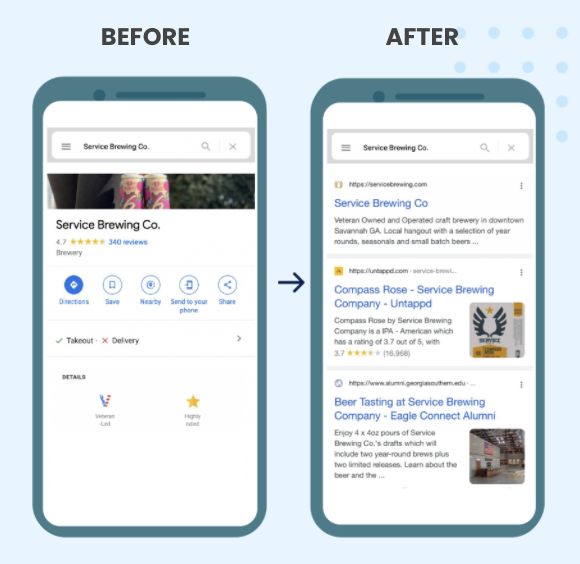Just like how this summer’s House antitrust package would have caused higher prices, fewer choices, and less innovation, the Senate’s latest push will kneecap leading American businesses, ruin the consumer experience online, and undermine popular innovations and privacy standards.
The Senate’s American Innovation and Choice Online Act will brick the internet by reducing affordability, opportunity, and connection for consumers and small businesses across the country.

Take convenient services we use everyday.
No Google Maps or Reviews at the top of Search, Amazon Basics, or Facebook and Instagram Integration
Companies won’t be able to recommend their own services in their marketplaces. So, Google can’t make Search curate results using Maps or YouTube to make them more convenient.
Here are just a few examples of how this Senate proposal could brick the internet

IMPACT
Discounted bundles disappear, making free and low-cost services more expensive for hard-pressed American consumers.
By denying platforms from offering combined services at a discounted price, Americans would lose out on things like Prime Shipping, Apple+, Google One+, and many more.

IMPACT
Consumers could no longer quickly and effectively compare products in order to get the best price.
By severely limiting the ways in which digital platforms can offer their services, consumers would lose out on useful tools for price-shop. This bill would make it impossible for Amazon to provide comparison boxes with lower-price same-brand products like Amazon Basics.

IMPACT
Going online or on apps could mean risking giving our personal information to the highest bad bidder.
The bill restricts platforms’ ability to quickly remove malicious third party providers and keep the data generated on their platforms out of the hands of bad actors and foreign corporations.

IMPACT
Small businesses and vulnerable communities would lose critical customer connections on online marketplaces like Amazon and Google.
The bill makes it illegal for platforms to help veteran, LGBTQ, and black-owned small businesses find loyal audiences online through targeted campaigns.
The Flaws Of The American Innovation and Choice Online Act
Just like how the Chinese Communist Party’s recent antitrust crackdowns wiped out a trillion dollars worth of market capitalizations, Americans can expect similar financial pains from this legislation depressing the investments and retirement funds of hardworking Americans.
U.S. antitrust enforcement should protect the consumer, not cause them pain.
The bill kills Amazon’s Prime shipping, denies Google from highlighting relevant Maps and Reviews at the top of a user’s search, and obliterates Apple+ bulk discount service.
Platforms are forced to disclose customers’ personal information to high-risk and foreign actors whether the shoppers want their data shared or not.
Platforms must partner with potentially risky sellers and cannot easily remove bad actors.
It prevents businesses from partnering with particular communities like veterans and military spouses, small business owners, and first-generation American business owners to promote their businesses on the company’s platform.
This emboldens progressive efforts and sends a signal that Congress supports radical moves like abandoning the consumer welfare standard for subjective standards like “economic justice” or “climate justice.”
